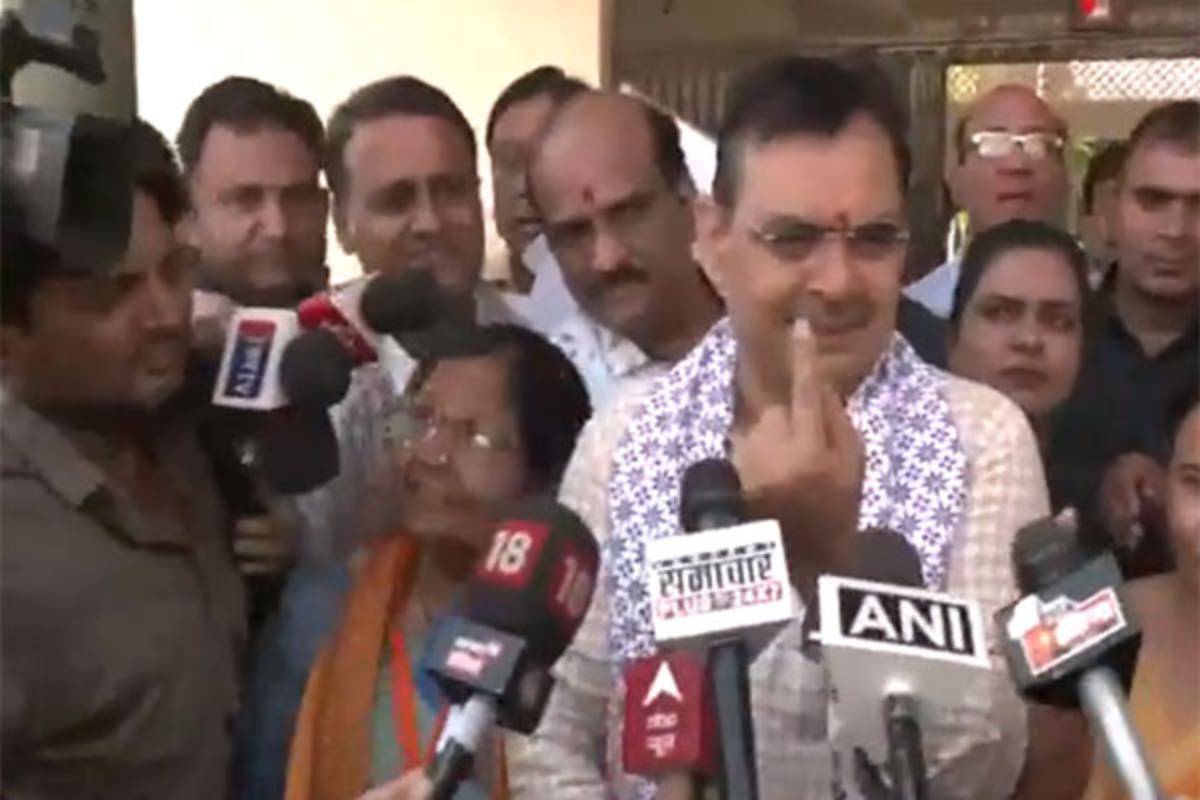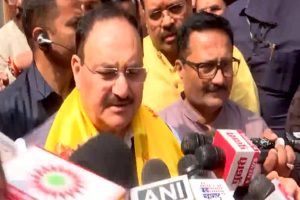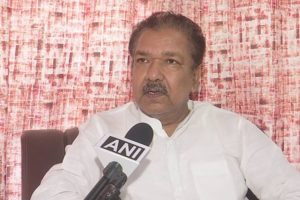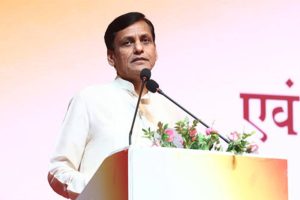Rajasthan Chief Minister Bhajanlal Sharma exercised his franchise at a polling booth in Jaipur during the ongoing Lok Sabha elections on Friday and said that the state is going to repeat the history of 2014 and 2019 Lok Sabha elections by ensuring the win of Bharatiya Janata Party candidates on all its 25 Parliamentary constituencies.
The BJP and its allies had secured victory in all 25 seats during the previous two elections in 2014 and 2019. In 2019, Hanuman Beniwal of the Rashtriya Loktantrik Party emerged victorious in the Nagaur seat with the support of the BJP.
“I would like to appeal to you today that this is a festival of democracy – do cast your vote. Your votes will strengthen our democracy, our country. I would like to tell you that Rajasthan will repeat the history of 2014 and 2019 – I am confident,” Chief Minister Bhajanlal Sharma told reporters in Jaipur.
State Minister Rajyavardhan Rathore who also cast his franchise said that this was a huge election for the country.
“This is a huge election, it is not a small election. It is the country that is the fifth largest economy in the world, it is an election of the largest democracy in the world and under the leadership of PM Modi it is going to become the third largest economy…’Matdaata hi Bharat ke nirmaata hai’,” Rathore said.
In the Jaipur City Lok Sabha constituency, the Bharatiya Janata party has fielded Manju Sharma while Pratap Singh Khachariyawas is the Congress candidate.
At different times in the past, both Congress and BJP contestants have been elected from here. The seat is currently represented by Ramcharan Bohra of the BJP.
The 25 parliamentary constituencies of Rajasthan will vote in two phases. In Phase 1 of polling in the state on April 19, which is also the opening phase of the seven-phased elections, voting is underway for 12 seats. The remaining 13 seats in the state will be contested in the second phase on April 26.
Meanwhile, the world’s largest democratic exercise kicked off in the country today, with the first phase of polling in 102 constituencies across 21 states and Union Territories.
This Lok Sabha election, to be conducted from April 19 to June 1, is set to be the second longest polling exercise in the country’s electoral history after the first general election, which was held over five months between September 1951 and February 1952.
The last general elections in 2019 were also held in seven phases. Vote counting will be done on June 4.





